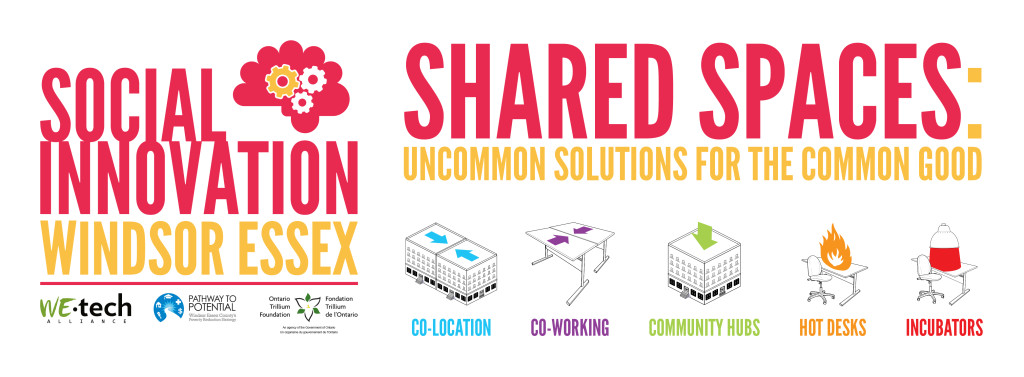August 23, 2016 – by Alexandra Lucier
Shared Spaces represent a growing trend across a variety of sectors, where leaders say they are beginning to look at projects in a new light, from innovative means to generating revenue, financing, partnerships, and making projects work. The advantages are many-fold: Shared Spaces aid in reducing costs, improving collaboration, enhancing impact, and supporting broader social purposes for non-profits and for-profits alike while fostering a strong sense of community.
Shared Spaces1 can be defined in a number of ways, including:
CO-LOCATION: space shared among a number of separate organizations
CO-WORKING: sharing of space among freelancers and independent workers
COMMUNITY HUBS: space that brings together service providers to help the surrounding area by offering a range of supports such as language instruction, job training, and after school programs
HOT DESKS: temporary, shared work spaces typically found in co-working spaces
INCUBATORS: provide strategic, administrative and/or financial support to small projects and organizations
So why are shared spaces emerging? Leaders across sectors are recognizing a need for systemic solutions to social issues too complex to be addressed by any one person or approach. Shared spaces connect diverse organizations and individuals, providing an opportunity for collaboration and knowledge-sharing. For-profit and non-profit strategies are beginning to merge, forming a dynamic team in which mission-based and market-based approaches coincide.
Furthermore, with global real estate prices soaring, and many businesses and organizations experiencing cutbacks in administrative budgets along with increasing community demands, affordable workspace has become an incentive for cost-sharing. The case is the same for small businesses owners, entrepreneurs and artists, who also benefit financially from sharing space and ideas. While 90s trends promised global, virtual work, the new millennium has brought the reinforcement of the importance of local space.
Shared spaces are a social innovation in themselves, as they provide an entirely new outlook and way of working. Separate organizations working separately, although still the most appropriate approach in some instances, no longer make sense as a dominant workplace model. The nature of work is changing, offering remarkable potential for economic, social, cultural, and environmental progress in the coming years.
What type of Shared Space does Windsor-Essex need most? Take our poll and let us know!
For more information about our initiatives, or how we can help, please contact:
Cathy Mombourquette
Director of Social Innovation
226.773.2816
Join the Social Innovation conversation online using #SocInn #YQG
1 Centre for Social Innovation publication series: http://socialinnovation.ca/sssi as referenced in Building Capacity, Sharing Values.




